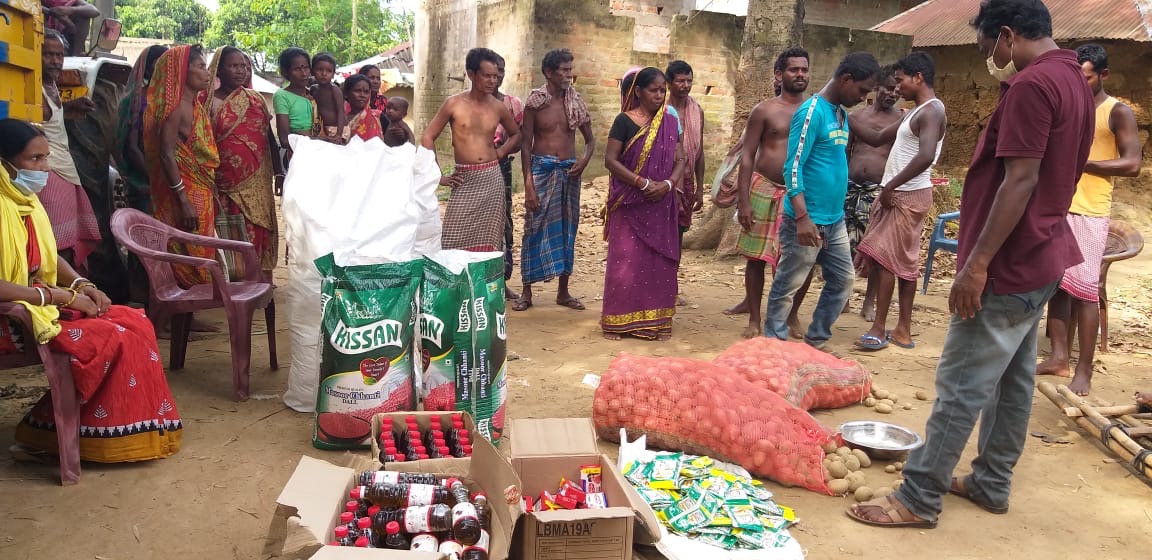 |
| CARE community researchers and organizers co-creating a food distribution system amidst COVID-19 |
The culture-centered approach (CCA) lives in, breathes from, struggles through the skin.
We have to be willing to see and name our complicities with the structures, as well as struggle through in dismantling these structures if we care about transformation.
Without this willingness to see one's complicity and the commitment to work to dismantle it, our critical articulations reproduce the colonizing logics of the structures.
Any theorizing of the CCA therefore has to work by grappling with what it is to work of/from/with/in/through the skin.
To work of/from/with/in/through the skin is to have the politics of one's skin embedded within the struggle for structural transformation. To work of/from/with/in/through the skin is to commit to ameliorating the tragedies of life that are inflected daily on the margins. Without the "skin in the transformation," the theorizing work performs layers of erasures that propel an extractive system.
We can do this work of ameliorating daily tradegies in everyday solidarities. In the work of co-creating community gardens. In the work of co-creating food infrastructures where we witness hunger.
In the work of agitating together against unjust policies.
This work is an invitation to place our skin in the transformative labour of the everyday.
Even as the CCA negotiates its interventionist space by dialoguing with Marxist and Postcolonial theories, a large part of its discomfort with received and abstracted theories emerges from the distance from the skin that is actively cultivated through theoretical abstractions.
The CCA suggests that any work of theorizing in this sense must recognize that the work of abstraction, removed from the everydayness of struggles on the ground, is disempowering.
Even when and especially so, when this theory work presents itself as radical or emancipatory without having placed itself in the struggle of building transformative registers, it reproduces the colonizing structures of extraction.
The work of/from/with/in/through the skin is an invitation to place oneself amidst the everyday negotiations of deeply unequal structures, not by writing off these structures or by erasing one's privilege, but by actually investing in the practical ways in which this privilege can be dismantled.